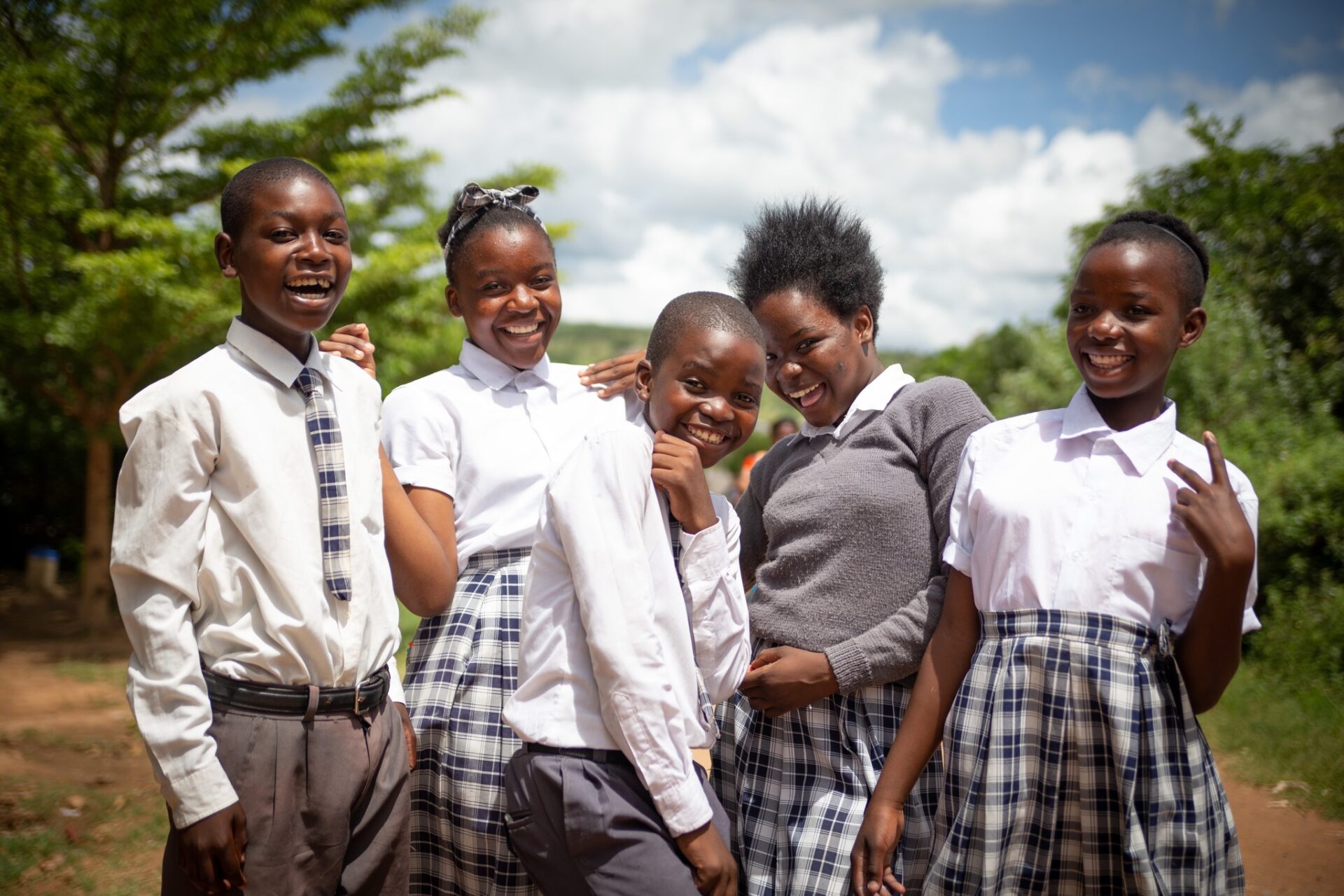African Education Program
Celebrating Youth Leadership: A Story of Community-Led Change in Kafue, Zambia
We marked International Youth Day with our Global Partner, The African Education Program (AEP). AEP works to unlock the potential of Zambia’s youth and adults by building and growing community-led organizations.
The African Education Program is approaching its 20-year anniversary. Co-Founder and Executive Director Julie-Anne Savarit-Cosenza shared the story of how this organization came into existence from its humble beginnings in a high school cafeteria. Since then, the African Education Program has partnered with community leaders in Kafue, Zambia, to build and grow its flagship Learning & Leadership Center, named the Amos Youth Centre. In addition, Lumuno Mweemba Chongo, Program Advisor and Amos Youth Centre Co-Founder, shared the latest on the holistic programs serving over 750 youth and women weekly.
Presentation Date: August 15th, 2023
Julie-Anne Savarit-Cosenza
Co-Founder and Executive Director
Julie-Anne co-founded the African Education Program (AEP) in 2004 to provide educational resources to disadvantaged youth in Zambia. She spent a decade volunteering and supporting AEP’s Learning & Leadership Center in Kafue. Julie-Anne holds a degree in international relations and worked as a communications associate for Burness Communications’ Global Team.
In 2014, she transitioned to lead AEP full-time, focusing on capacity building and leadership development for the local team. Julie-Anne ensures program excellence, financial transparency, fundraising, and communications. She is recognized as an M. Night Shyamalan Foundation Leader and a 2021 Gratitude Network Fellow. Connect with Julie-Anne on LinkedIn!
Lumuno Mweemba Chongo
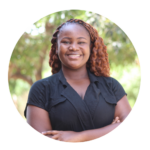 Co-Founder & Director of Programs
Co-Founder & Director of Programs
Lumuno works for AEP because her dream and passion have always been to serve her community and its children. Her favorite part of her job is seeing lives change for the better through the different programs and scholarships.
Being a part of that change is an honor. Lumuno is passionate about mental health, and she focuses on trauma-informed care. She has been with AEP since 2014, starting as a counselor and social worker.
African Education Program
Feel free to fill out the form at the bottom of the page to subscribe to their monthly newsletter
AEP: Repro Health Initiatives
AEP Facebook Page
AEP Instagram
AEP Linkedln
AEP Twitter
AEP YouTube
Q+A
Questions from audience, with responses from Julie-Anne Savarit-Cosenza, Executive Director; Lumuno Mweemba Chongo, Director of Programs; and Pamela O’Brien, Development Director
About The African Education Program:
What are the main obstacles to increasing access to hygiene products? Are they taxed?
Lumuno’s response: The main obstacle is that most girls cannot afford menstrual hygiene products and resort to using old cloths, rags, or any absorbent material they can find in their place. Yes, menstrual hygiene products are still taxed in Zambia at a rate of 16%. For more information, please read this article.
What happens if a girl gets pregnant– does the center consider them back with mentorship, knowing that the excellent program was not there?
Pamela’s Response: The pregnancy rate at Amos Youth Centre is only 2%. And yes, the mother is welcomed back to our program after two years to ensure proper and adequate mother-to-child care and bonding. Lumuno is also a trained social worker who has informed girls of their rights to stay in school through their pregnancy. For more information, read this article.
Have you ever used radio or TV entertainment to work on these issues? Ex: Birth control, HIV, etc.
Pamela’s response: With the Reproductive Health Access Initiative, we use a peer education model to get the word out. We have found that this is the most effective way to work on these issues. Only about 10% of the youth in our community have access to a TV. However, most have access to a radio. Interestingly, radios have lost their importance in homes due to mobile phones. Even the cheapest phones have access to local radio stations and, some, the BBC.
What vegetables do you grow?
Pamela’s Answer: The youth support a network of community gardens that grow a number of vegetables for our Nutrition Program. Vegetables grown include Rape (Kale), Chinese cabbage (Bok Choy), Spinach, Onions, and Tomatoes.
Partnerships and Collaborations:
Who is the best person to connect with on the ground in Zambia? We are always looking to partner and boost other local efforts.
Pamela’s response: Please email AEP’s Development Director, Pamela O’Brien, and she will connect you with the best person on the ground in Zambia. You can reach her at pamela@aeprogram.org.
Do you know about Days for Girls? The program provides reusable menstrual pads and the materials to keep them clean. There is also an educational component, which includes education on contraception.
Pamela’s Response: We have been in touch with Days for Girls recently. AEP also teach our mothers how to sew reusable pads as another small business/income stream. The RHAI has an educational component on sexual and reproductive health and rights (SRHR). We also partner with Saalt and Pixie Cup, two U.S. menstrual cup manufacturers, who also provide education and training on their products.
Is synopsis information available so a wider audience can understand this program? And has there been any contact with USAID, the UN, or other organizations for wider involvement?
Pamela’s Response: You can find a synopsis of our Reproductive Health Access Initiative on our website here. USAID’s current focus is supporting locally-led development and initiatives like ours through our local Learning & Leadership Center, the Amos Youth Centre. We hope our first USAID grant funded by the RHAI will expose our work to more funding. We also welcome corporate sponsors for this program. We are grateful for the support of Hologic, a global champion of women’s health, who has provided grant funding to establish the initiative. The Zambian Ambassador to the UN is a champion of our work, and we are in touch with him regularly. Lumuno was recently invited by the USAID/IREX Youth Excel team to present our findings to a global convening of practitioners next month in Ghana. We are excited for her and this presentation!
Where is your program located?
Pamela’s Answer: AEP’s flagship Learning & Leadership Center is located in Kafue, Zambia – approximately 35 km outside the capital city of Lusaka.
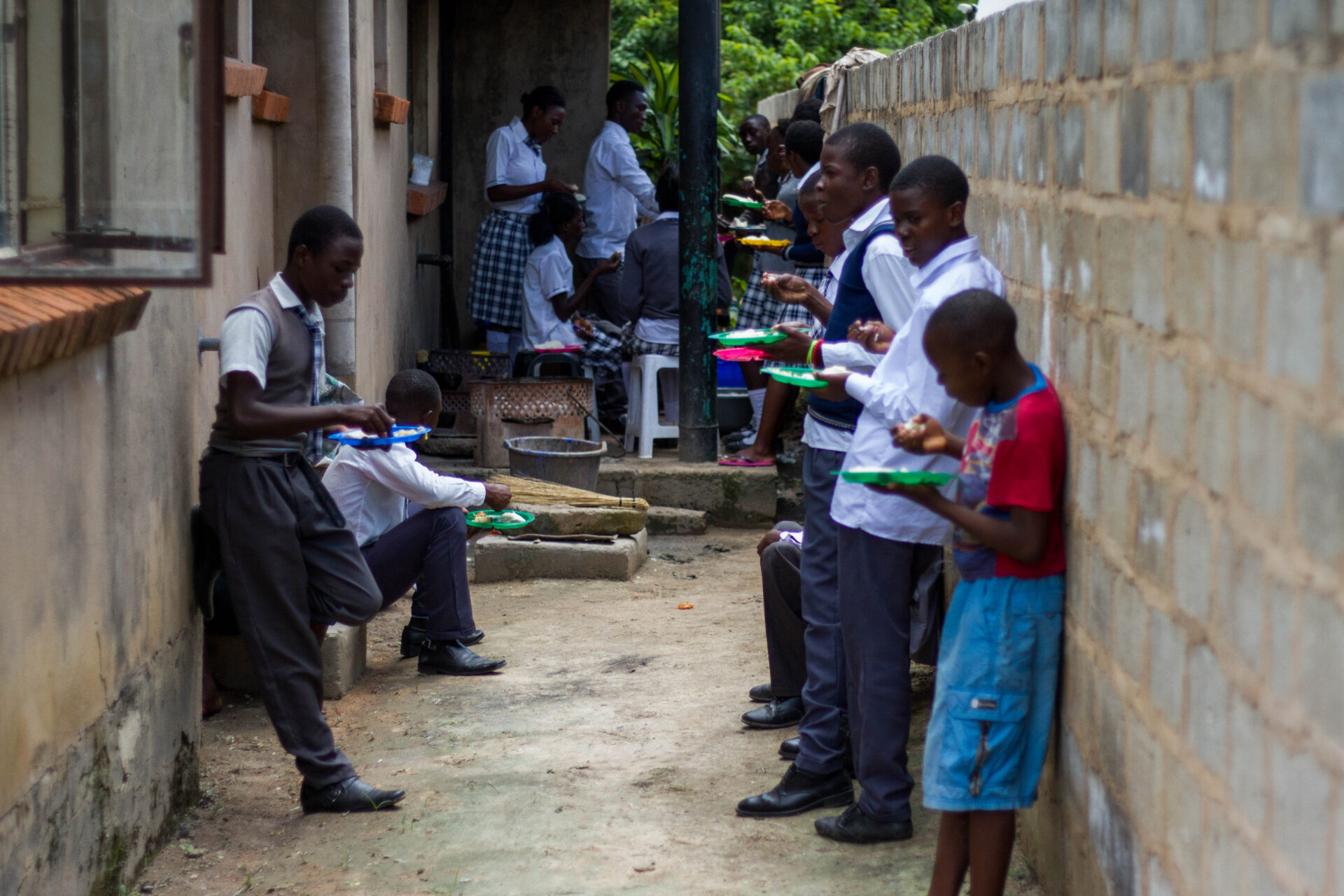 Students gathered at AEP's Amos Youth Centre, created to foster inclusive learning and leadership development
Students gathered at AEP's Amos Youth Centre, created to foster inclusive learning and leadership development  Improving access to modern reproductive health knowledge and supplies is a key pillar of AEP's work
Improving access to modern reproductive health knowledge and supplies is a key pillar of AEP's work 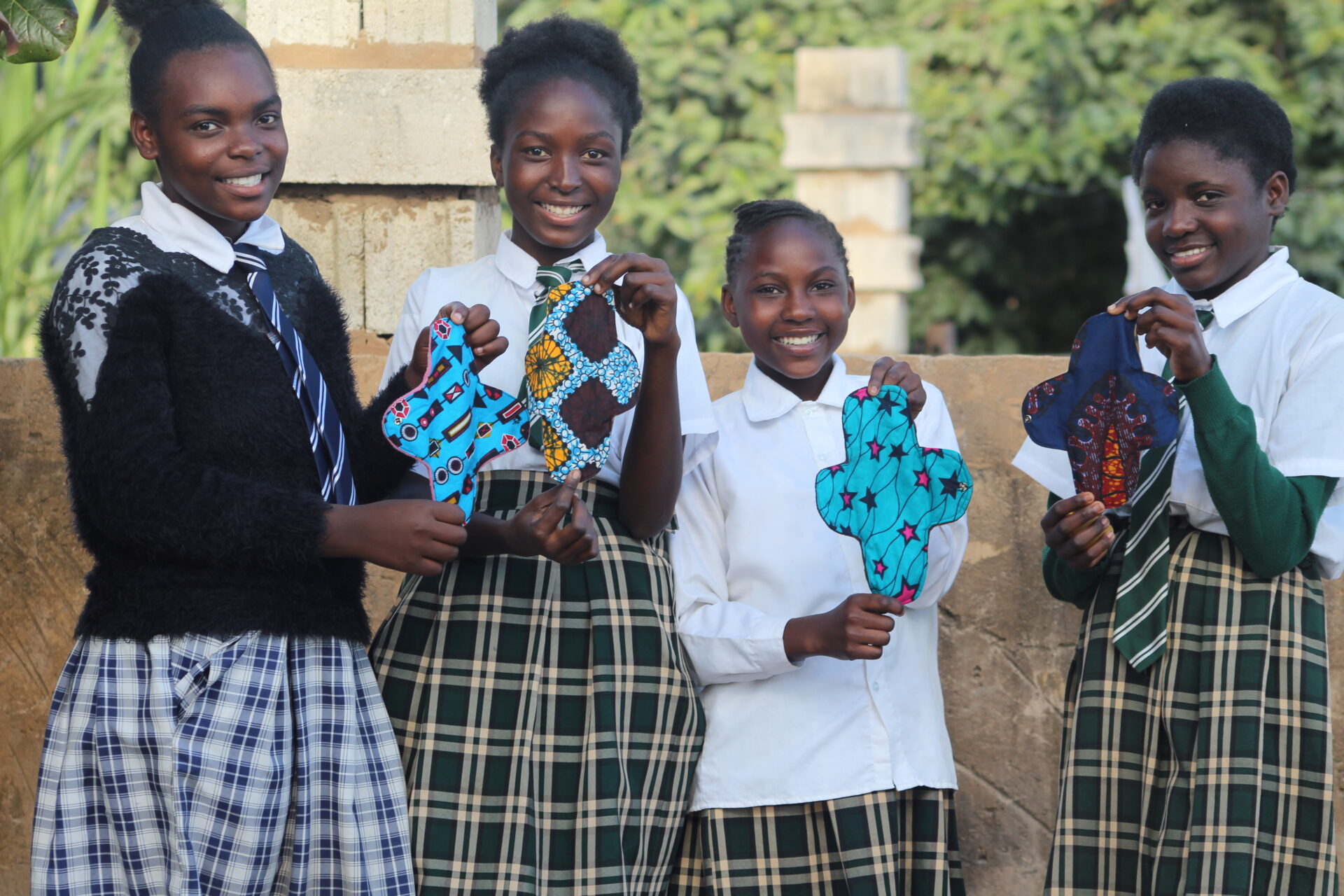 Improving access to modern reproductive health knowledge and supplies is a key pillar of AEP's work
Improving access to modern reproductive health knowledge and supplies is a key pillar of AEP's work 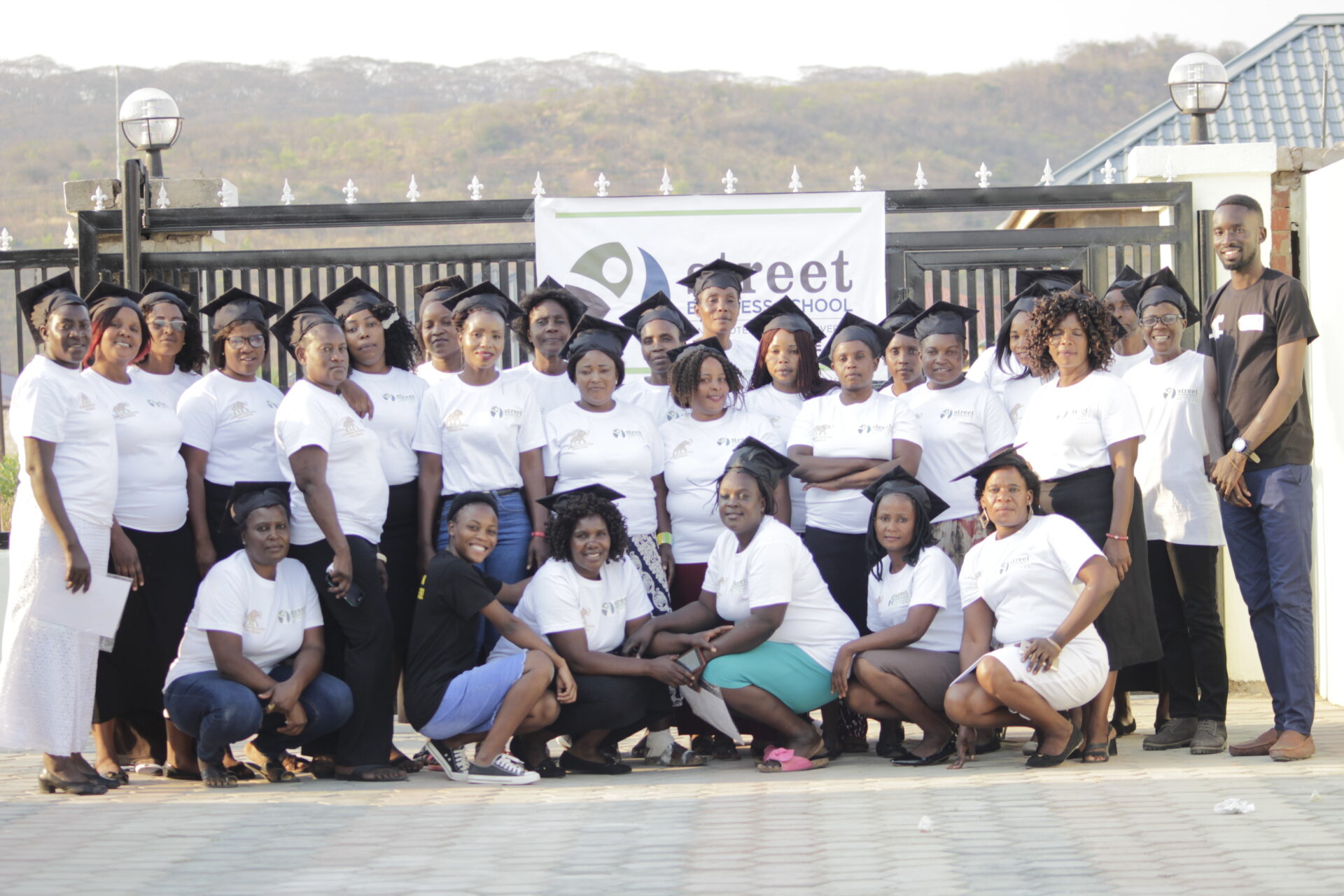 AEP's entrepreneurship program empowers youth with resources for community-led change
AEP's entrepreneurship program empowers youth with resources for community-led change 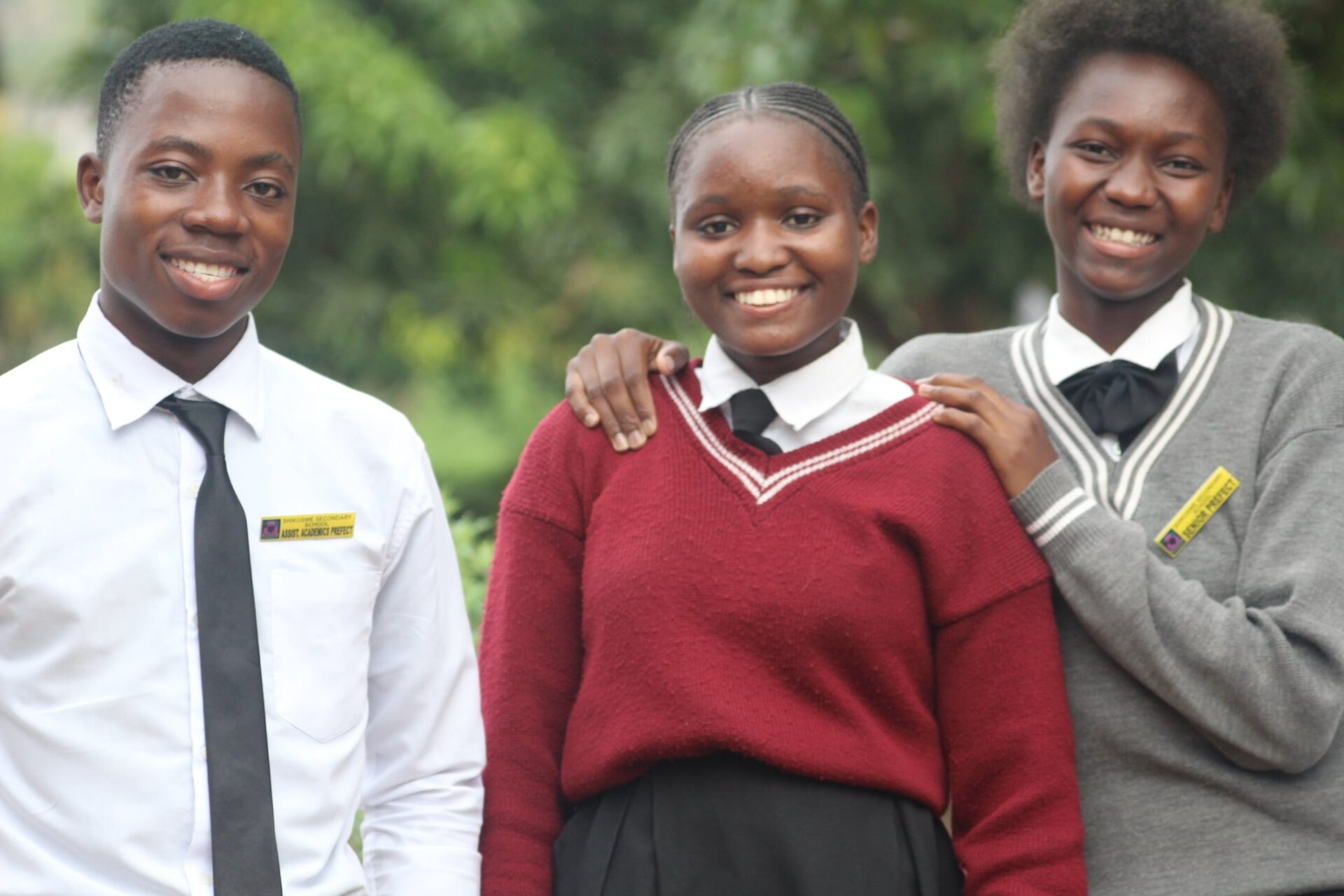 AEP's Learning & Leadership Center equips students with life-changing business and financial literacy knowledge
AEP's Learning & Leadership Center equips students with life-changing business and financial literacy knowledge 